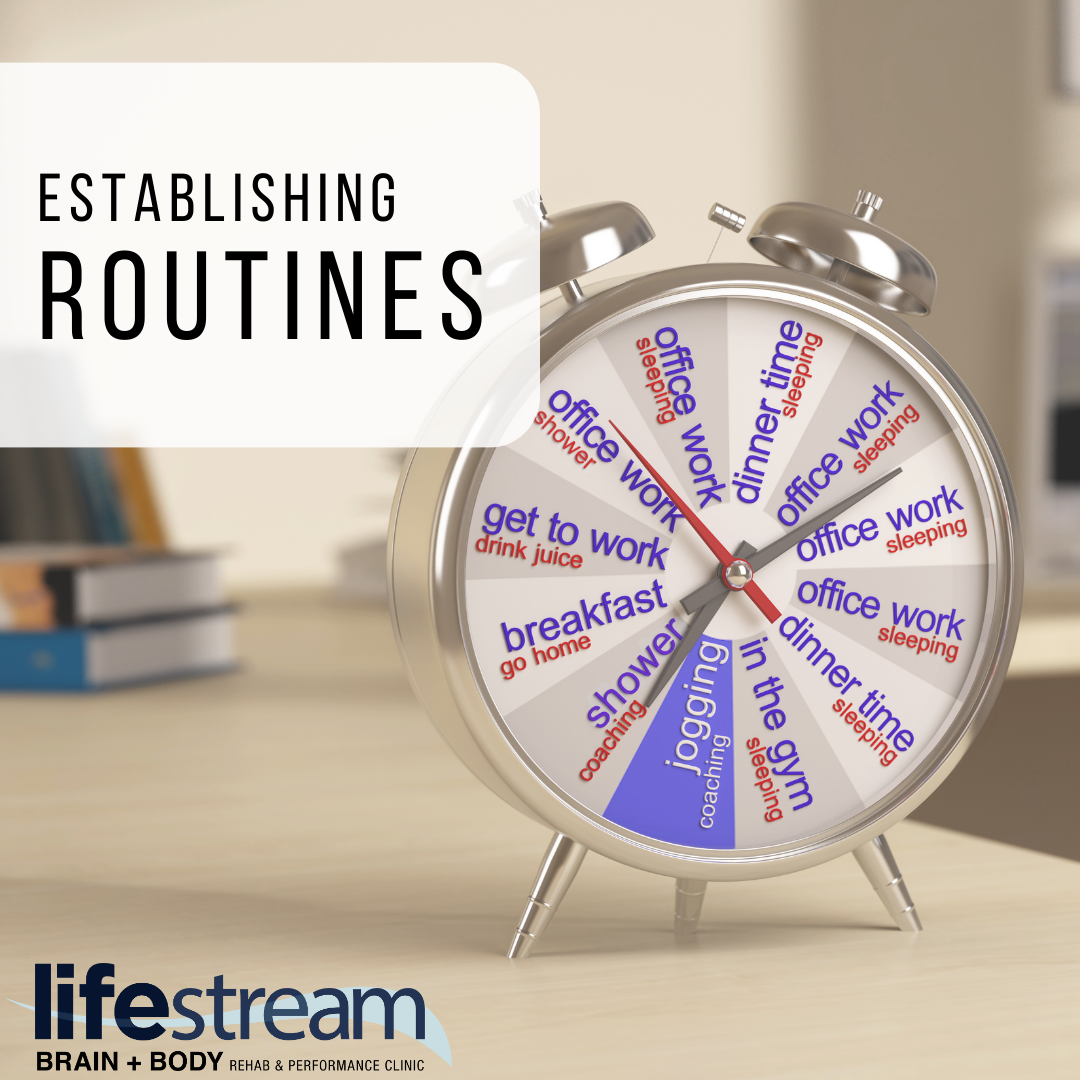Creating Effective Routines
How do habits form?
First days of school are right around the corner. It’s about that time of the summer when kids and teenagers (and parents too) are getting antsy and ready for some routine again. However, we often feel the strain from adjusting back to more strict or slightly busier routines.
Humans are habitual by nature and thrive on routines. In order to discuss some ideas for establishing routines, we must first understand the importance and role that the brain plays.
A region of the brain called the basal ganglia has largely been associated with the formation of habits and routines. It communicates in loops with the cerebral cortex (the outer portion of the brain involved in a lot of the higher processing functions such as muscle movement, language, learning, reason, etc.) and the thalamus (involved in integration of various body senses). The basal ganglia is involved in and sensitive to various systems in which reward feedback occurs. The basis of habit learning often falls in this sort of sequence:
stimulus -> response -> reward/ feedback. Since the basal ganglia sits in the loop between the senses and motor response and is involved in reward and motivation, it makes sense that it is involved in habit learning.
As discussed above, habit formation occurs in a repeated particular environment with a repeated particular event (the stimulus) in which a response develops and is reinforced by feedback or a “reward”. For example, if you experience pain every day and are prescribed pain medication and the pain goes away when you take the medication, the reward that helps you remember to take the medication is the lack of pain. Once these habits are formed, the response becomes automatic without the conscious decision to do so. A resulting feature is often speed, efficiency, and limited thought requirement as executive control is not required. This is obviously desirable as it saves energy, time, and the stress to make a conscious decision for something that we have to do regularly.
How do you create effective routines?
Having simple morning, night, and after school routines can provide security and even other health benefits for you and your family. Studies have shown that families and children with consistent, healthy routines have better sleeping habits, better weight maintenance, less stress, more family resilience during crisis, academic success and development of social, emotional, and language skills.
Here are some tips for creating routines:
– Make a plan: If a routine does not currently exist, you will likely need to plan and intentionally schedule tasks for when and how you want a regular routine to go. A plan should include when, where, and what you will be doing as well as creating action steps to enact the plan. This sets expectations for yourself and those in your home.
– Communicate the plan: Making a plan is only one part of the step. Including others in on your plan for a routine or explaining to others who are included in your routine (like your spouse or kids) what the routine is will help to establish the context of the routine and its repetitive nature. Explaining the routine before or as you are doing it (especially with kids) is also beneficial.
– Create consistent contexts: One of the most important factors is the context in which a behavior is expected as well as the regularity of the context. For example, if you are attempting to remember to take some supplements every day, but they end up floating around the house to various spots, you will not likely remember to take them. However, if you set the supplements by the coffee pot and say “I will not make my coffee until l’ve taken my supplements”, then you will likely remember. In this example, the context of taking the supplements before you make coffee is established by keeping the supplements by the coffee pot.
– Start simple and build: Trying to make too many changes at once can be overwhelming and lead to frustration and burnout before the habit formation occurs. Pick something small to add into your routine and once it becomes more of a habit, try adding in something else. You will eventually find yourself with a routine that works well for you!
Sources:
https://www.npr.org/2012/03/05/147192599/habits-how-they-form-and-how-to-break-them
https://www.ncbi.nlm.nih.gov/pmc/articles/PMC4526748/
https://my.clevelandclinic.org/health/articles/23073-cerebral-cortex#:~:text=Each%20of%20these%20lobes%20is,%2C%20emotion%2C%20intelligence%20and%20personality.
https://my.clevelandclinic.org/health/body/22652-thalamus#:~:text=Your%20thalamus%20is%20your%20body%27s,%2C%20consciousness%2C%20learning%20and%20memory.
https://www.annualreviews.org/doi/10.1146/annurev-psych-122414-033417?url_ver=Z39.88-2003&rfr_id=ori%3Arid%3Acrossref.org&rfr_dat=cr_pub++0pubmed
https://www.ncbi.nlm.nih.gov/pmc/articles/PMC4816693/
https://www.ncbi.nlm.nih.gov/pmc/articles/PMC10357511/
https://eclkc.ohs.acf.hhs.gov/about-us/article/importance-schedules-routines#:~:text=Just%20like%20adults%2C%20children%20feel,in%20control%20of%20their%20environment
https://www.ncbi.nlm.nih.gov/pmc/articles/PMC6378489/#:~:text=Observational%20research%20indicates%20that%20individuals,and%20do%20not%20skip%20meals.
https://journals.lww.com/iycjournal/Fulltext/2007/10000/Family_Routines_and_Rituals__A_Context_for.2.aspx

